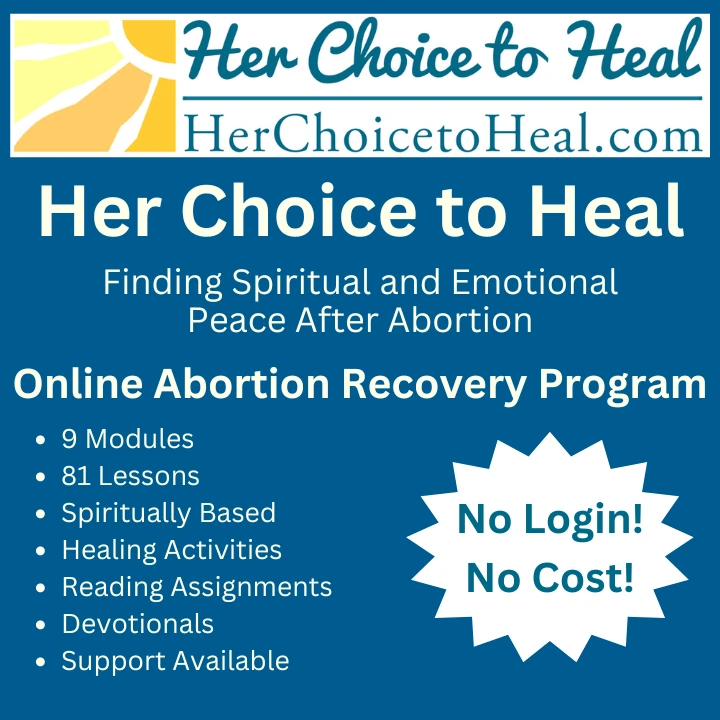

Abortion Risks
Below is a description of the immediate risks associated with abortion:
Pelvic Infection
Germs (bacteria) from the vagina or cervix may enter the uterus during an abortion, causing an infection in the pelvic region. Antibiotics typically treat these infections, but in rare cases, a repeat suction abortion, hospitalization, and/or surgery may be necessary.
Incomplete Abortion Risks
An incomplete abortion means that parts of the fetus or other pregnancy products (like the placenta) may not be entirely expelled from the uterus, necessitating further medical procedures. This condition can result in infection and bleeding.
Blood Clots in the Uterus
Blood clots that cause severe cramping can also occur. These clots are usually removed by a repeat surgical abortion procedure.
Heavy Bleeding
Some bleeding is normal after an abortion. However, heavy bleeding (hemorrhaging) is uncommon and may be treated by repeat suction (surgical abortion), medication, or, in rare cases, surgery. It’s important to ask your doctor about heavy bleeding and what to do if it happens.
Cut or Torn Cervix
The opening of the uterus (cervix) may be torn because the abortionist must stretch it open to allow medical instruments to pass into the uterus during surgical abortion procedures.
Puncture/Tear of the Uterus Wall
A medical instrument can puncture the wall of the uterus during a suction abortion procedure. Perforation can lead to infection, heavy bleeding, or both, depending on the severity. Surgery may be required to repair the uterine tissue, and in serious cases, a hysterectomy (surgical removal of the uterus) may be necessary.
Anesthesia-Related Complications
As with other surgical procedures, anesthesia increases the risk of complications associated with abortion. Due to these risks, many surgical abortion procedures are completed without benefit of anesthesia which can entail a great deal of physical pain to the woman.
Rh Immune Globulin Therapy
Genetic material found on the surface of a woman’s red blood cells are known as the Rh Factor. If a woman and her fetus have different Rh Factors, she must receive medication to prevent the development of antibodies that would endanger future pregnancies.
Scar Tissue on the Uterine Wall
A surgical abortion can result in the formation of scar tissue in the uterus, known as Asherman’s syndrome. This condition can lead to abnormal, absent, or painful menstrual cycles, future miscarriages, and infertility.
Possible Side Effects and Risks of D&E Abortion
- A hole in the uterus (uterine perforation) or other damage to the uterus.
- Injury to the bowel or bladder.
- A cut or torn cervix (cervical laceration).
- Incomplete removal of the unborn child, placenta, or contents of the uterus requiring additional surgery.
- Complications from anesthesia, such as respiratory problems, nausea and vomiting, headaches, or drug reactions.
- Inability to get pregnant due to infection or complication from an operation.
- Potential hysterectomy as a result of complication or injury during the procedure.
- Hemorrhage (heavy bleeding).
- Emergency treatment for any of the above problems, including possible surgery, medication, or a blood transfusion.
Impact on Future Pregnancies
Complications from an abortion, or having multiple abortions, may make it difficult to conceive in the future. Additionally, some research suggests a possible link between abortion and an increased risk of vaginal bleeding during early pregnancy, preterm birth, low birth weight, placenta problems (such as retained placenta), and an incompetent cervix, which can lead to premature birth or pregnancy loss in future pregnancies. A weakened or damaged cervix can lead to the potential for premature opening (incompetent cervix) in subsequent pregnancies, especially for women who have had multiple surgical abortions.
Emotional, Psychological, and/or Physical Risks
Because every person is different, one woman’s reaction to an abortion will certainly be different from another’s at a spiritual, emotional, psychological or physical level. These impacts can vary over time, depending on the mental health of the post-abortive person.
After an abortion, it is common for a woman to experience both positive and negative feelings regarding her choice, even at the same time. It’s typical to feel instant relief due to the fact that the procedure is over and that she is no longer in an unplanned pregnancy. However, after a few months, this relief can be replaced with many other emotional reactions.
One woman may feel sad that she was in a position where all of her choices were difficult ones. She may feel emotionally sad about ending her pregnancy. She may also experience a sense of emptiness or guilt, wondering whether or not her decision was correct.
Some women who describe these feelings find they go away with time. Others find them more difficult to overcome as time advances.
Some women find these feelings diminish over time, while others struggle more as time progresses. Factors that can increase the likelihood of a difficult adjustment to an abortion include:
- Lack of counseling before consenting to an abortion.
- Absence of support from family and friends.
- Feeling pressured into the decision by the father of the child, family, or friends, which can lead to feelings of anger and withdrawal.
- Feeling like there was no choice but to have an abortion, often leading to complicated emotions afterward.
A woman’s long-term response to an abortion can also be influenced by past life events. For example, negative feelings may persist if she is not accustomed to making major life decisions or if she already has serious emotional issues.
Talking with a professional and/or objective counselor can be crucial in helping a woman fully consider her decision before taking any action. It is essential to find a source of information that does not benefit financially from the abortion decision. Your local pregnancy center is the best source of information and support for women who are considering abortion as well as assisting them emotionally after an abortion (abortion recovery).
Other documented emotional reactions to abortion may include, but are not limited to:
- Acute feeling of grief
- Depression
- Anger
- Fear of disclosure
- Preoccupation with babies or getting pregnant again
- Nightmares
- Sexual dysfunction
- Termination of relationships
- Emotional coldness
- Increased alcohol and drug abuse
- Eating disorders
- Anxiety
- Flashbacks of the abortion procedure
- Anniversary syndrome
- Repeat abortions
- Suicidal thoughts or behaviors
Medical Emergencies
In a medical emergency, an abortionist may not be required to comply with certain conditions if, in the physician’s medical judgment, they are prevented from doing so due to the emergency. This includes during abortion procedures.
After an abortion, go to the emergency room if you experience:
- Heavy bleeding occurs (2 or more pads/hour)
- Severe pain not controlled by medication
- Fever
- Difficulty breathing
- Chest pain
- Disorientation
If you are considering abortion due to your circumstances, remember that your situation can change. If you are unsure about this choice, take time to understand your feelings before rushing into an abortion. Pregnancy centers are available to assist you in any situation, regardless of your decision.
Abortion risks are challenging to fully outline because individuals who have abortions rarely disclose this choice, even to their physicians. Planned Parenthood, the world’s largest abortion provider, estimates that as many as one out of every three American women have endured an abortion. If abortion is so common, why does no one ever talk about it afterwards?
Despite its prevalence, there is often silence post-abortion, likely due to the emotional impact – feelings of shame, guilt, fear of judgment, etc.
Sadly, this silence makes it difficult to fully understand the long-term impact of this choice. As a result, identifying trends related to the physical risks of abortion over a woman’s lifetime is challenging. The list provided outlines initial versus long-term risks associated with abortion.
Types of Abortion
Abortion risks can vary depending upon the procedure and stage of pregnancy.
- Medical Abortion: Typically done up to nine weeks gestation, involving medication to terminate the pregnancy.
- Surgical Abortion: Involves removing the fetus from the uterus using medical instruments like a vacuum device, syringe, or curette a surgical procedure (also called suction curettage).
- A D&E (Dilatation and Evacuation) abortion procedure is typically done after 12 weeks of pregnancy. The procedure begins when the doctor opens (or dilates) the cervix. The uterus is then scraped and the unborn child and placenta are removed. After 16 weeks, the unborn child and placenta are removed, piece-by-piece, using forceps or other instruments.
Making a decision about an abortion is deeply personal and can be complex. It’s essential to be informed about the potential risks and implications, both immediate and long-term. At your local pregnancy center, their goal is to provide you with comprehensive information and support, enabling you to make a decision that is right for you.
They understand that each situation is unique, and they are there to offer a non-judgmental, caring environment where you can explore all your options. Whether you have concerns about the physical risks, emotional impacts, or future implications of abortion, they are equipped to provide the guidance and support you need.
Remember, you are not alone in navigating this decision. We encourage you to take the time you need to consider all aspects of your choice. If you have any questions, need more information, or simply wish to talk to someone who understands, please don’t hesitate to reach out to your local pregnancy center.
Your health, well-being, and peace of mind are their top priorities. They are there to ensure you have the resources, support, and understanding to make an informed and empowered decision about your pregnancy.
REFERENCE: Abortion Risks Louisiana and Texas Department of State Health Services.
Frequently Asked Questions
Question: Do I need an appointment?
Answer: Walk-ins are welcome. However, it is best to make an appointment to minimize your office wait time.
Question: What is the cost?
Answer: All services are free and confidential.
Question: What should I expect when I come for my visit?
Answer: Upon your arrival, a friendly receptionist will guide you to meet your client advocate. This advocate will offer you a judgment-free space to talk, followed by essential information and a pregnancy test. In the event of a positive test result, a dedicated medical professional will perform a limited ultrasound to verify the pregnancy's viability and estimate the age of the fetus.
Question: How long after sex does it take for a pregnancy test to work and how accurate is the test?
Answer: Pregnancy tests can be performed 7 to 10 days after conception. A client with a negative result may be invited to return within 2 weeks for a repeat test if she has not had her period.
If you have taken a home pregnancy test, you may want to confirm results with a laboratory-quality test at your local pregnancy center. These pregnancy tests detect HCg levels within 7 to 10 after conception.
Question: Will you tell anyone about my visit?
Answer: Pregnancy centers maintain a rigorous privacy and confidentiality policy. Clients' information is safeguarded against unauthorized disclosure, respecting their right to privacy, except in instances mandated by law. This includes situations necessary for public health, preventing harm to the client or others, or in specific circumstances where the use or disclosure of information is justified without prior consent, such as in cases of abuse reporting or suicide/homicide prevention.
Question: When should I schedule an appointment?
Answer: High-quality, medical-grade pregnancy tests are capable of detecting pregnancy from the first day after your initial missed period. We advise scheduling an appointment if you've missed a period, have any queries related to pregnancy, or suspect that you might be pregnant.
Question: How far along do I have to be to get a free ultrasound?
Answer: After an initial consultation with a client advocate, many pregnancy centers offer on-site ultrasound scans. These limited ultrasounds are conducted by a licensed nurse sonographer or a registered diagnostic medical sonographer (RDMS) and are subsequently reviewed by a licensed physician. The purpose of an ultrasound is to confirm the viability of the pregnancy and to establish the gestational age.
Question: I already know I'm pregnant and I want an abortion, what's next?
Answer: It is advisable to have an ultrasound to confirm the viability of your pregnancy and to ensure it is located within the uterus, as 20% to 25% of pregnancies end in miscarriage. Moreover, the ultrasound helps in determining the stage of your pregnancy, which is essential in making an informed decision about the type of abortion procedure you may consider. Many pregnancy centers offer a limited ultrasound free of charge.








